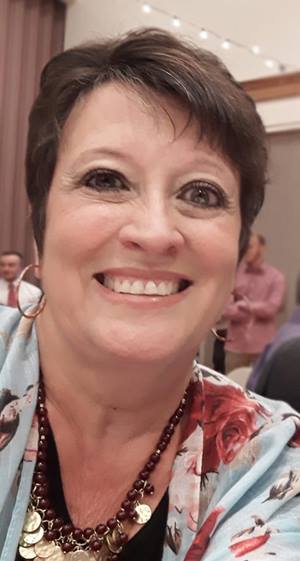The Language Services team’s work hasn’t slowed amid COVID-19. Interpretation and translation have been a great need in providing great patient care.


Elisabet Prieto Mayor
For example, interpreter Elisabet Prieto Mayor was recently called to interpret an end-of-life conference at Intermountain Medical Center where she was to communicate to the patient’s condition to his family. Upon arriving, she learned the patient was dying from COVID-19 complications and his wife was particularly upset with the staff.
Following introductions with the family, she discovered the patient’s teenage children spoke English. They had been relaying incomplete information and as a result, the patient’s wife struggled to understand her husband’s situation. She was under the impression that her husband was originally stable. She was confused to learn from staff that nothing else could be done to save her husband’s life and she suddenly needed to prepare to let him go peacefully.
“Putting myself in her shoes for a minute, a feeling of frustration came over me,” Elisabet says. “Also putting myself in the nurses’ and providers’ shoes, I felt their stresses and the pressure of working during this awful pandemic. “
The nurse caring for the patient shared with the patient’s wife that staff had been communicating updates to one of her daughters. After discussing and understanding both ends, it was discovered that the daughter didn’t deliver the complete message to the rest of the family. This helped the wife warm up to the care team.
The patient’s provider spoke to the family to deliver the patient’s full status. The wife was given the opportunity to see her husband through a glass door. She asked Elisabet to communicate to the nurse her appreciation for the care she and the rest of the staff had given him. The family was then given the opportunity to say their goodbyes to the patient.
His wife wrote a prayer on a piece of paper and was given permission to read it to him through the room’s phone. The staff then followed by disconnecting the patient from the ECMO machine where the family was able to enter the room wearing PPE and be with the patient as he passed peacefully.
“I would like people to know, both patients and providers, that we’re here for them,” Elisabet says. “They can reach us over the phone, with video remote interpretation, Telehealth, Connect Care, Vocera, etc. It’s very important to have a certified medical interpreter there to interpret to avoid misunderstandings and future problems.”
Esther Gutierrez, Elisabet’s colleague, says, “While our profession is typically misunderstood, stories like Elisabet’s clearly illustrate how meaningful communication plays an essential role in Intermountain’s fundamentals of extraordinary care. Day in and day out, Language Services department acts like the light in a dark room. We promote a safer environment for both patients and caregivers helping them to feel safe and at ease through language. Language Services also contributes to a better patient experience as well as better clinical outcomes where patients, caregivers and providers can understand and trust each other.”
“It’s very important to have very good and clear communication between patients and providers,” Elisabet adds.
September 30 is International Translation Day. Watch this video that celebrates our great interpreters.
Learn more on the Language Services website.

